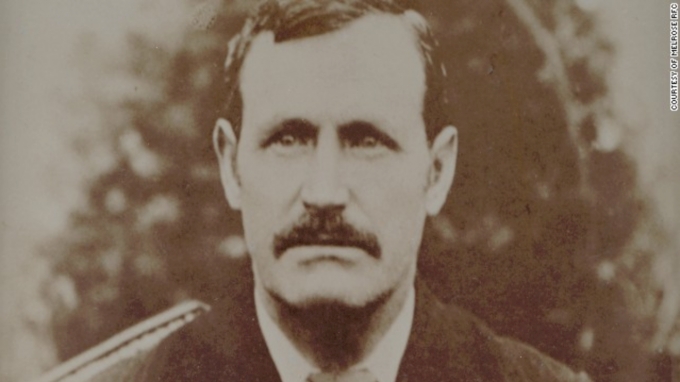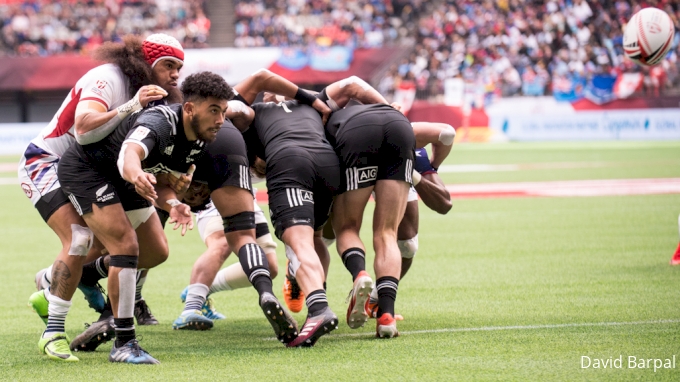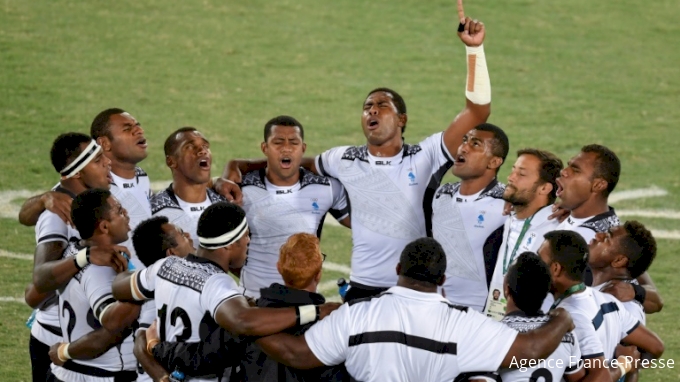What Is Rugby Sevens & How Did It Get Started?
What Is Rugby Sevens & How Did It Get Started?
What is rugby sevens, where did it get started, and how has it become so popular?

Somewhere, someday, somebody in 19th century thought to themselves, "Hmm, rugby would be a lot cooler if there were less players and more space to work with." The solution to this pondering was the invention of rugby sevens, which as the name would suggest, involves two teams of sevens playing on the same size pitch as a standard rugby game.
Here's a quick dive into the history of rugby sevens, and some of its variations from the standard 15-aside game:
History
In 1883, the first known sevens tournament took place in Melrose, Scotland at the behest of butcher and Melrose RFC player Ned Haig.

In an effort to raise additional money, Melrose RFC hosted a "Sports Day", which featured foot-races, a drop kick competition, a dribbling competition, and a place kicking competition in addition to rugby sevens, the main attraction.
Eight teams took part in the tournament, and it was the home team Melrose RFC who won the inaugural edition of the competition. They defeated their rivals Gala RFC in the final and received a cup donated by the ladies of Melrose, now known as the "Ladies Cup".
Since the first tournament in 1883, the Melrose Cup has been played every single year since, featuring teams from all around the world. Sadly, 2020 will be the first year that the Melrose Cup will not be played, as the pandemic has caused its cancellation.
Rules Differences
Aside from the obvious fact that there are only seven players on a team, rugby sevens does have a few minor differences from XVs. The main variation is that sevens matches are only 14 minutes long, where as in XVs the games are 80 minutes. Because of the amount of open space in a sevens match, each player is required to do more running per minute than they would normally do, so having an 80 minute long match would be more than exhausting.
Another difference from XVs is the scrum. In sevens, the scrums are only made up of three players from each team rather than eight like there are in XVs.

Conversions and penalty kicks also differ in sevens, in that you don't have the option to use a tee when shooting for goal. In XVs, kickers are allowed to use a tee to kick the ball off of when they are attempting to aim for the uprights. Sevens kickers must drop kick the ball or else it doesn't count. They also only have 30 seconds to take their kick from the time their team scores, whereas XVs players can take up to 90 seconds.
The last major change in sevens from XVs is that yellow card offenses result in a two minute ban, rather than a ten minute ban.
Aside from these differences, the rules in the two codes are exactly the same.
Sevens Competitions
The sport of sevens has long been a popular offseason game during the summer months for XVs rugby players around the world, but in the 1970's it started gaining traction as a stand-alone sport played by sevens-specific players.
The Hong Kong Sevens was one of the first big international competitions to gain steam as a premier-level tournament, featuring official national teams. It started in 1976, and moved the evolution of rugby union forward by featuring big sponsors and promotion, and demonstrating that quality rugby competitions could be hosted outside of the traditional rugby powerhouse nations.

Sevens rugby, thanks in large part to the Hong Kong Sevens, continued to grow in popularity and in 1993 the first Sevens World Cup took place. From 1993 to 2009, the tournament only featured men, but since then it has included both men and women.
In 1999 the Sevens World Series was founded, which is formatted similarly to Formula One Racing. There are anywhere from 7-11 stops on the circuit (depending on the year), and each team competing in the tournaments scores a certain number of points in the overall standings based on how they finished on each stop. It features both men and women, and is one of the most popular rugby competitions in the world.
In 2016, rugby sevens became an Olympic sport, and the gold medal was won by Fiji, the first gold medal every won by the country.
